
An Index of ionarts Discographies
Mahler, an Addiction
Bruckner is a love, Mahler an addiction
When I helped put together three complete Mahler cycles to be aired during Classical WETA’s Mahler Month in 2009, I accompanied it with a series of articles on Mahler's Symphonies (and favorite recordings). These are the core of the Mahler Survey that’s now on ionarts, 26 essays in all. What was conspicuously missing at the time was a discussion of complete Mahler cycles, the point being that no one cycle could do all symphonies equal justice and, perhaps more to the point, that such a survey would be an enormous amount of extra work. So it has proven to be… and after a decade, I’ve finally cobbled together enough information to attempt this Mahler Symphony Cycle Survey.
A Question of Completeness
There are symphonic cycles that are either complete or not complete in a straightforward manner. If you’ve recorded fewer than 15 Shostakovich- or six Martinů-symphonies, your cycle is not complete. If you have recorded more than that you know something more than we do. But take Bruckner: Nine symphonies or eleven, including the “F-minor” and “0”? Or Schubert: Which, if any, completions of the numerous fragments to include? Mahler tops it all. We have Symphonies One through Nine, of course. But wouldn’t a proper cycle also include Das Lied von der Erde, which Mahler counted among his symphonies? Then there is the Tenth Symphony to consider and include: at the very least just the completed Adagio (and/or Pergatorio), or better yet one of its many performing versions. Now what’s a complete cycle. One that features Nine Symphonies? Those, and the Lied? Nine Symphonies and the Adagio? Nine and both, Adagio and Lied? Ten symphonies but not the Lied? Everything? Maybe boni like Das Klagende Lied, the Blumine-movement or Todtenfeier [sic], the early version of what would become the Second Symphony’s first movement? The Britten-arrangement of “What the Wild Flowers tell me”?
Since this survey has the ambition to be completist, I have included anything and everything that might constitute a cycle, including a few incomplete ones. But to visualize the state of completeness, I have added a sort of traffic light to the various states:

I distinguish between:
Arrangement
Because it’s more practical and because the Twitter-survey suggested as much, I will sort these sets by conductor, not by date-finished, as is my practice in the other recent, advanced surveys. The practical aspect comes in, where there are inclusions of semi-cycles, that were never really issued as complete cycles but constitute something alike enough… and with conductors with multiple (almost-)sets to their name but overlap among them. It’s simply neat to know how many times Haitink and Bernstein went around the full (or not) Monty.
Unfinished and Taking Forever
Why publish this work in progress when I've only made it to Bernstein, so far? Well, partly to motivate myself to work on this. Also because I tweeted out the following: "Should I publish the #Mahler Symphony Cycle Survey I've been working on (on and mostly off) forever unfinished* or hold off until it is complete?" and the response, however limited, was on the "go ahead" side. What pushed it over the edge was this smartalec remark: "Mahler review dragging on endlessly. Who says irony is dead, who says this?" Well, there you have it. Mahler, dragging on and with irony.
Help!
Finally a call for help: Such a survey would not be possible—and certainly not complete—without the kind help of many fellow Mahler-lovers who chip in with their knowledge, cover pictures… who spot lacunae, spelling mistakes, broken links and factual errors. Thank you all for all much-appreciated contributions past and future! Finally a few abbreviations: LvdE = Lied von der Erde. LefG = Lieder eines Fahrenden Gesellen. DKL = Das klagende Lied.
Enjoy - and please comment either below or on Twitter.

Follow @ClassicalCritic

Claudio AbbadoClaudio Abbado is famous for his Mahler, both that of his mid-career and that of his autumn years… when a recovered Abbado re-emerged with the Lucerne Orchestra to take the musical world by storm. A media-darling, through the years his Mahler has been showered with often indifferent praise. Unfortunately it’s difficult to do Abbado’s Mahler any justice with generalities, because neither is his early Vienna-Berlin-Chicago cycle simply polite or his later Berlin-Lucerne cycle inspired (or, alternatively, fussy and over-hyped). It’s simply a mixed bag, throughout. As such, none of his cycles on CD can be outright recommendations, while individual recordings ought to grace every good Mahler collection. His DVD cycle (lacking an 8th) might be recommendable, on the other hand, because watching Abbado’s craft transpire before your eyes you should get you sufficiently into the adoring mindset that will make everything sound great, even the bits that, in isolation, might not be. Also: There is no clear separation between Abbado’s three cycles. The first cycle shares Symphonies 1, 5 and 8 with the ‘Berlin’ cycle. The ‘Berlin’ cycle shares its Lucerne 2nd with the DVD cycle. And Symphonies 2 and 5 that Abbado recorded with Chicago have never showed up in any cycle. I suppose one could cobble together a very incomplete almost-cycle from Abbado's Chicago Mahler (Symphonies 1, 2, 5, 6 & 7), but that's too sketchy to include here. It is all available on CD, though. Abbado I: Vienna++ Cycle (1977 – 1994) Vienna Philharmonic, Berlin Philharmonic, Chicago Symphony Orchestra DG Symphonies 1-9 + A No.2: Cheryl Studer, Waltraud Meier. No.3: Jessye Norman. No.4: Frederica von Stade, No.8: Sylvia McNair, Cheryl Studer, Rosemarie Lang, Annes Sofie von Otter, Peter Seiffert, Bryn Terfel, Jan-Hendrik Rootering Vienna takes Symphonies 2, 3, 4, 9 and the Andante from the 10th. Berlin takes 1, 5, and 8. Chicago contributes 6 and 7. | |||
|---|---|---|---|
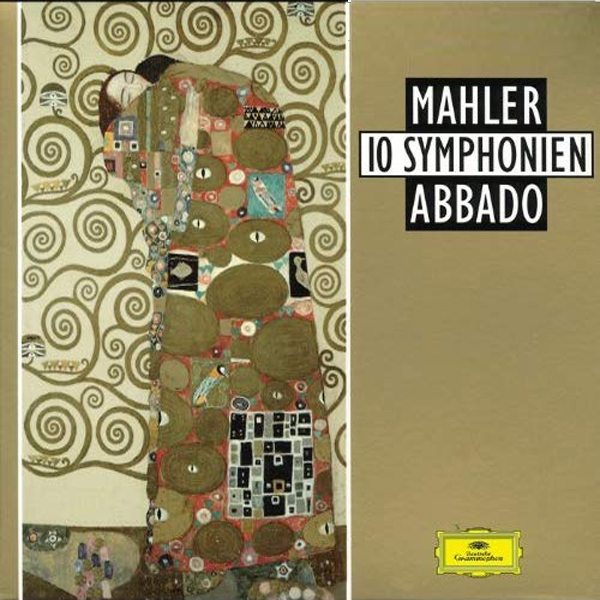 The Symphonies 1-9 + A DG Release: 1995 12CDs US | UK | DE |
|||
Abbado II: Berlin+ Cycle (1989 – 2005) Berlin Philharmonic, Lucerne Festival Orchestra DG The Symphonies 1-9 No.2: Eteri Gvazava, Anna Larsson. No.3: Anna Larsson. No.4: Renee Fleming. No.8: Sylvia McNair, Cheryl Studer, Rosemarie Lang, Annes Sofie von Otter, Peter Seiffert, Bryn Terfel, Jan-Hendrik Rootering All with the Berlin Philharmonic, except for the Second, which comes courtesy of Abbado's Lucerne Festival Orchestra. ClassicsToday review here. Ionarts review: "The Return of the King" - Claudio Abbado in Mahler's 6th. Most of Abbado's Mahler has been reviewed in the respective Mahler-Survey essays. | |||
 The Symphonies 1-9 DG Release: 2014 11CDs US | UK | DE |
|||
Abbado III: DVD/Blu-ray Cycle (2003 – 2009) Lucerne Festival Orchestra EuroArts/Accentus Symphonies 1-7/9 No.2: Eteri Gvazava, Anna Larsson. No.3: Magdalena Kožená. No.4: Magdalena Kožená | |||
 Symphonies 1-7 EuroArts Release: 2014 4 blu-rays/DVDs US | UK | DE |
 Symphony 9 Accentus Release: 2011 DVD US | UK | DE |
 Symphony 9 Accentus Release: 2011 Blu-ray US | UK | DE |
|
Maurice Abravanel (1963 – 1974) Utah Symphony Vanguard/Musical Concepts The Symphonies 1-9 + A No.2: Beverly Sills, Florence Kopleff . No.3: Christine Krooskros. No.4: Netania Davrath. No.8: Janine Crader, Lynn Owen, Blanche Christensen, Nancy Williams, Marlena Kleinman, Stanley Kolk, Malcolm Smith, David Clatworthy. Maurice Abravanel and his Utah forces were Mahler pioneers and by all accounts those (Americans, generally) who grew up on his cycle (roughly contemporary to Bernard Haitink's Amsterdam cycle), instead of Kubelik's or Bernstein's or Solti's or Haitink's Mahler, were not any the worse off for it. As Gene Gaudette points out, these were not only more affordable than Columbia Masterworks' rvial recordings with the New York Philharmonic, but "Abravanel's performances [also] offered an alternative to Bernstein's hyper-romanticized interpretive vision, putting the focus on Mahler's daring sonorities and unabashed modernism." These were also among the first Mahler symphonies to be (re-)released in high-resolution formats (DVD-Audio), which gave them something of a second lease on life in the late CD-age. A MusicWeb review can be found here. ClassicsToday reviews here of symphonies 2/4 and 7/8. | |||
 The Symphonies 1-9 + A Musical Concepts Release: 2003 10CDs US | UK | DE |
|||
Vladimir Ashkenazy | |||
 Symphony 1, Blumine, LefG Markus Eiche SSO Live Release: 2010 1CD US | UK | DE |
 Symphony 2 Michelle DeYoung SSO Live Release: 2012 1CD NA/mp3 US | UK | DE |
 Symphony 3 SSO Live Release: ???? 1CD NA/mp3 US | UK | DE |
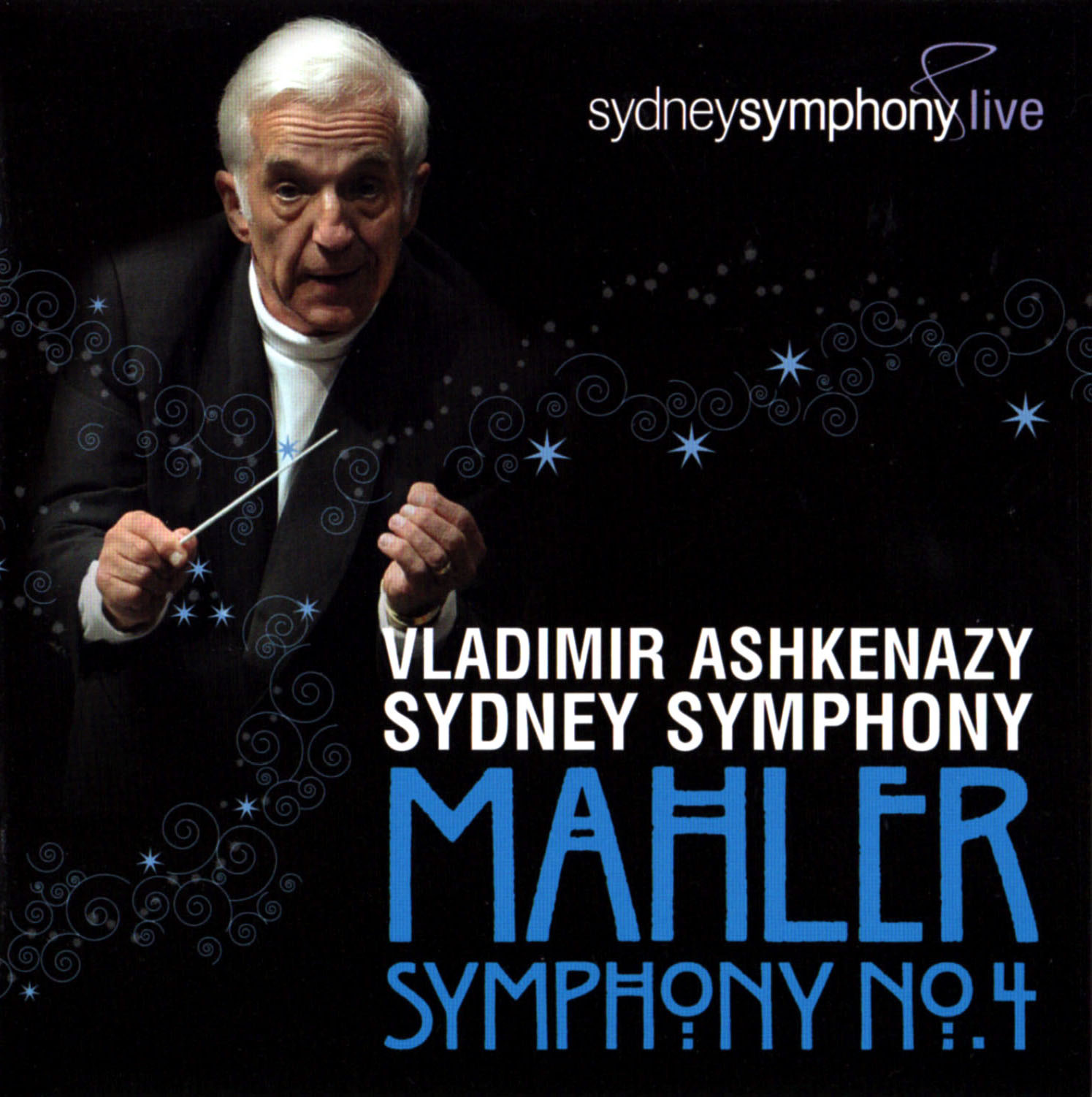 Symphony 4 Emma Matthews SSO Live Release: ???? 1CD NA/mp3 US | UK | DE |
 Symphony 5 SSO Live Release: 2010 1CD NA/mp3 US | UK | DE |
 Symphony 6 SSO Live Release: 2011 1CD US | UK | DE |
 Symphony 7 SSO Live Release: 2013 1CD NA/mp3 US | UK | DE |
 Symphony 8 [Soloists] SSO Live Release: 2010 1CD US | UK | DE |
 Symphony 9 SSO Live Release: 2013 1CD NA/mp3 US | UK | DE |
 Symphony 10 (Barshai) SSO Live Release: 2012 1CD NA/mp3 US | UK | DE |
 DLvdE Lilli Paasikivi, Stuart Skelton SSO Live Release: 2013 1CD NA/mp3 US | UK | DE |
|
John Barbirolli | |||
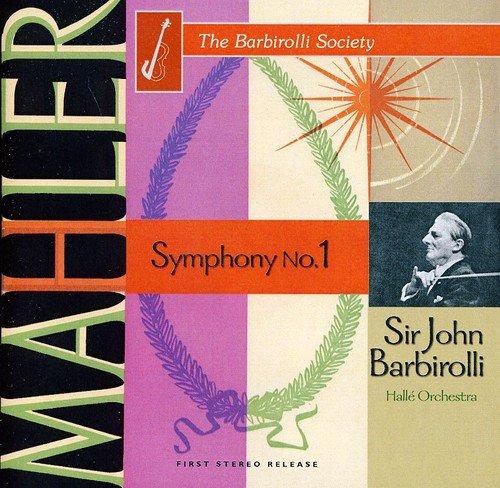 Symphony 1 Hallé Orchestra Barbirolli Society Release: 2009? 1CD US | UK | DE |
 Symphony 2 Berlin Phil Testament Release: 2004 1CD US | UK | DE |
 Symphony 3 Berlin Phil Testament Release: 2004 2CDs US | UK | DE |
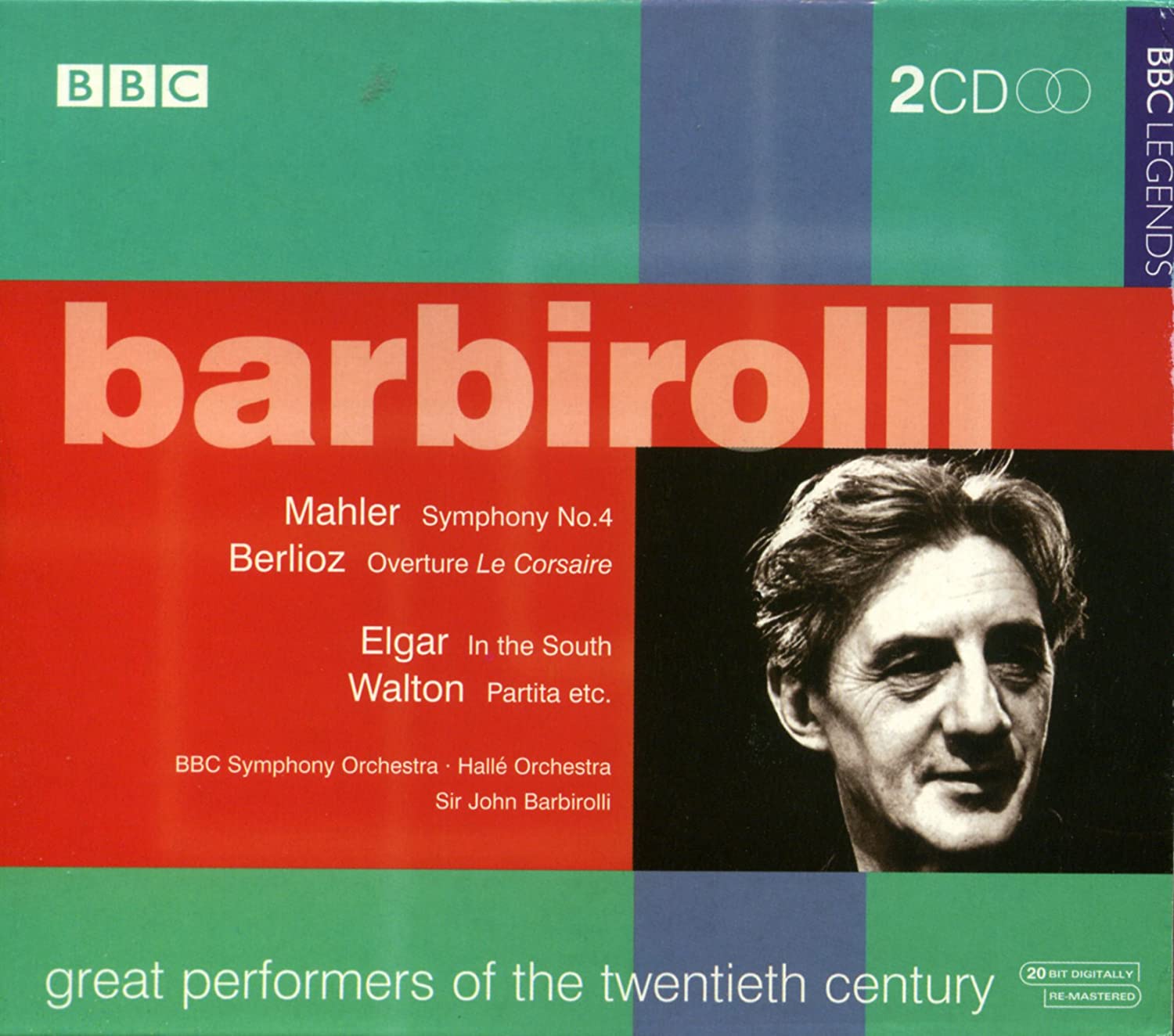 Symphony 4 Heather Harper BBC SO Release: ???? 1CD US | UK | DE |
 Symphony 5 New Philharmonia O. EMI/Warner Release: 2013 1CD US | UK | DE |
 Symphony 6 New Philharmonia EMI/Warner Release: 2011 1CD US | UK | DE |
 Symphony 7 Hallé & BBC NSO Barbirolli Soc. Release: 2016 1CD US | UK | DE |
 Symphony 9 Berlin Phil EMI/Warner Release: 2012 1CD US | UK | DE |
Leonard BernsteinLeonard Bernstein, whether you ultimately like his recordings or not, is the ultimate, consummate Mahlerian. He had his predecessors and Mahlerian trailblazers, of course (Mitropoulos and Barbirolli), on whose efforts he built, in New York and internationally. He had his counterpart in Europe, with Rafael Kubelik. The pioneering work of Maurice Abravanel’s, as mentioned above, should not be underestimated, either. But no other conductor championed Mahler so passionately, embodied the composer so totally, or arguably did as much to popularize the once deeply unpopular, casually dismissed composer Gustav Mahler. His first, “New York” cycle (the 8th came from London), was the first complete cycle… coming just ahead of Solti’s, Kubelik’s, and Haitink’s. (This neatly reflects the efforts of then still independent large record companies at the time, Columbia, Decca, Deutsche Grammophon, and Philips. EMI/HMV might have toyed with the idea of recording a cycle with Klemperer, but if they ever seriously contemplated that, they only got through Nos. 2, 4, 7, 9, and the famous recording of the Lied von der Erde.) Bernstein then added another cycle (two, in fact!) in the later, ‘European’ stage of his career. The neat and easy separation is apt, as far as the interpretations are concerned (which are propulsive but still relatively straight-laced in the New York cycle only to become overtly emotive, expansive, even extreme in the European one), although very little time has actually passed between the recording of the two (three). In fact, there is a slight overlap between them, as Bernstein did not record the Adagio of the 10th for Sony until 1975, by which time both his “Deutsche Grammophon” cycle and the Unitel video cycle had gotten under way. There is not, however, any recording-material overlap between these three cycles, except that the Sony and Unitel Lied von der Erde are the same. The 8th in the Unitel and DG cycle feature a very similar cast and were recorded within weeks, if not days, of each other, but at different performances: the former in Vienna and the latter in Salzburg. Bernstein I: Sony Cycle (1960 – 1967*) New York Philharmonic + London Symphony Orchestra, Israel PO Sony Symphonies 1-9 + A (* + LvdE et al.) No.2: Lee Venora, Jennie Tourel. No.3: Martha Lipton. No.4: Reri Grist. No.8: Erna Spoorenberg, Gwyneth Jones, Gwyneth Annear, Anna Reynolds, Norma Procter, John Mitchinson, Vladimir Ruzdjak, Donald McIntyre. DLvdE: Christa Ludwig, Rene Kollo Leeds Festival Chorus, London Symphony Orchestra Chorus, Orpington Junior Singers, Highgate School Boys' Choir, Finchley Children's Music Group * The core 9 symphonies were all recorded by 1967. The Adagio of the 10th was recorded in 1975 (after the Vienna Adagio 10th!) and Das Lied (only included in the Carnegie and the Masters Edition) in 1972. There is a Japanese edition on SACDs. ClassicsToday review of the Sony "Original Jacket" CD release here; of the first(?) Box here; of the more complete 'Carnegie Hall' remastered edition here. MusicWeb reviews (both Tony Duggon's) of the early edition and the Carnegie Hall edition here and here. | |||
 The Symphonies 1-9 + A, KTL, 3RS Original CD Release (?) Sony Release: 2001 12CDs US | UK | DE |
 The Symphonies 1-9 + A, LvdE Carnegie Edition Sony Release: 2009 12CDs US | UK | DE |
 The Symphonies 1-9 + A, KTL Original Jackets Sony Release: 2012 12CDs US | UK | DE |
 The Symphonies 1-9 + A, LvdE Masters Edition Sony Release: 2020 12CDs US | UK | DE |
Bernstein II: Deutsche Grammophon Cycle (1974* – 1988) Berlin Philharmonic, Lucerne Festival Orchestra DG The Symphonies 1-9, A (* + LvdE et al.) No.2: Eteri Gvazava, Anna Larsson. No.3: Anna Larsson. No.4: Renee Fleming. No.8: Sylvia McNair, Cheryl Studer, Rosemarie Lang, Annes Sofie von Otter, Peter Seiffert, Bryn Terfel, Jan-Hendrik Rootering. DLvdE: James King, Dietrich Fischer-Dieskau * Adagio 10 was recorded live at the Konzerthaus in 1974, No. 8 was recorded live in Salzburg at the Grosses Festspielhaus on August of 1975. The Unitel performance, meanwhile, was recorded in Vienna (not Salzburg) but in the same year with a largely identical cast. A new recording had been planned to be made in New York, but Bernstein's death interfered. The included Lied (only in the 2006 Edition) is the spectacularly good King/Dieskau Decca recording from 1966. MusicWeb reviews (Terry Barfoot) here and (Collector's Edition; Simon Thompson) here. | |||
 The Symphonies 1-9, A DG (oop) Release: 1991 13CDs US | UK | DE |
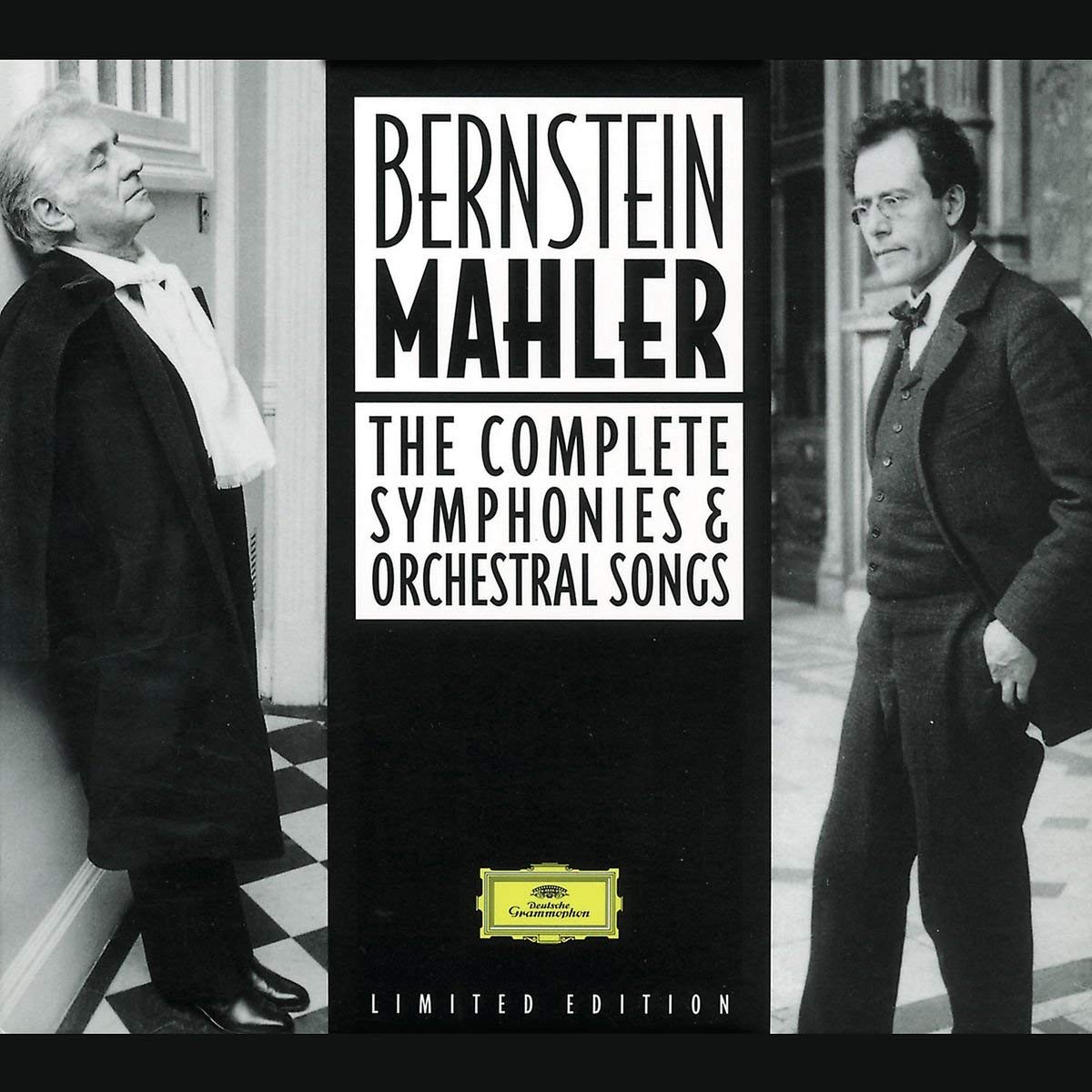 The Symphonies 1-9, A, LvdE, KnWu, RL, KTL, LfG DG Release: 2006 16CDs US | UK | DE |
 The Symphonies 1-9, A Collectors' Edition DG Release: 2010 11CDs US | UK | DE |
|
Bernstein III: Unitel Cycle (1974* – 1988) Vienna Philharmonic, LSO, Israel PO DG The Symphonies 1-9, A, LvdE No.2: Sheila Armstrong, Janet Baker. No.3: Christa Ludwig. No.4: Edith Mathis. No.8: Edda Moser, Judith Blegen, Gerti Zeumer, Ingrid Mayr, Agnes Baltsa, Kenneth Riegel, Hermann Prey, Jose van Dam. DLvdE: Christa Ludwig, Rene Kollo The Lied von der Erde is actually the same 1972 performance as that now in the Sony cycle. The 8th is very similar to (but not the same as) the DG cycle recording. Non-symphony recordings included in this cycle actually go all the way to 1990 (Lieder eines fahrenden Gesellen). The Sy.2 on here, recorded with Sheila Armstrong and Janet Baker and the LSO in 1973 at the Ely Cathedral, has appeared individually on Sony but is not part of the Sony cycle. The 8th has also appeared separately on Sony (Laser disc?) and was recorded in the Konzerthaus in Vienna in 1975. The interview-DVD to go with this set can be found here. | |||
 The Symphonies 1 - 3 DG/Unitel Rel ease: 2005 2DVDs US | UK | DE |
 The Symphonies 4 - 6 DG/Unitel Release: 2005 2DVDs US | UK | DE |
 The Symphonies 7 & 8 DG/Unitel Release: 2005 2DVDs US | UK | DE |
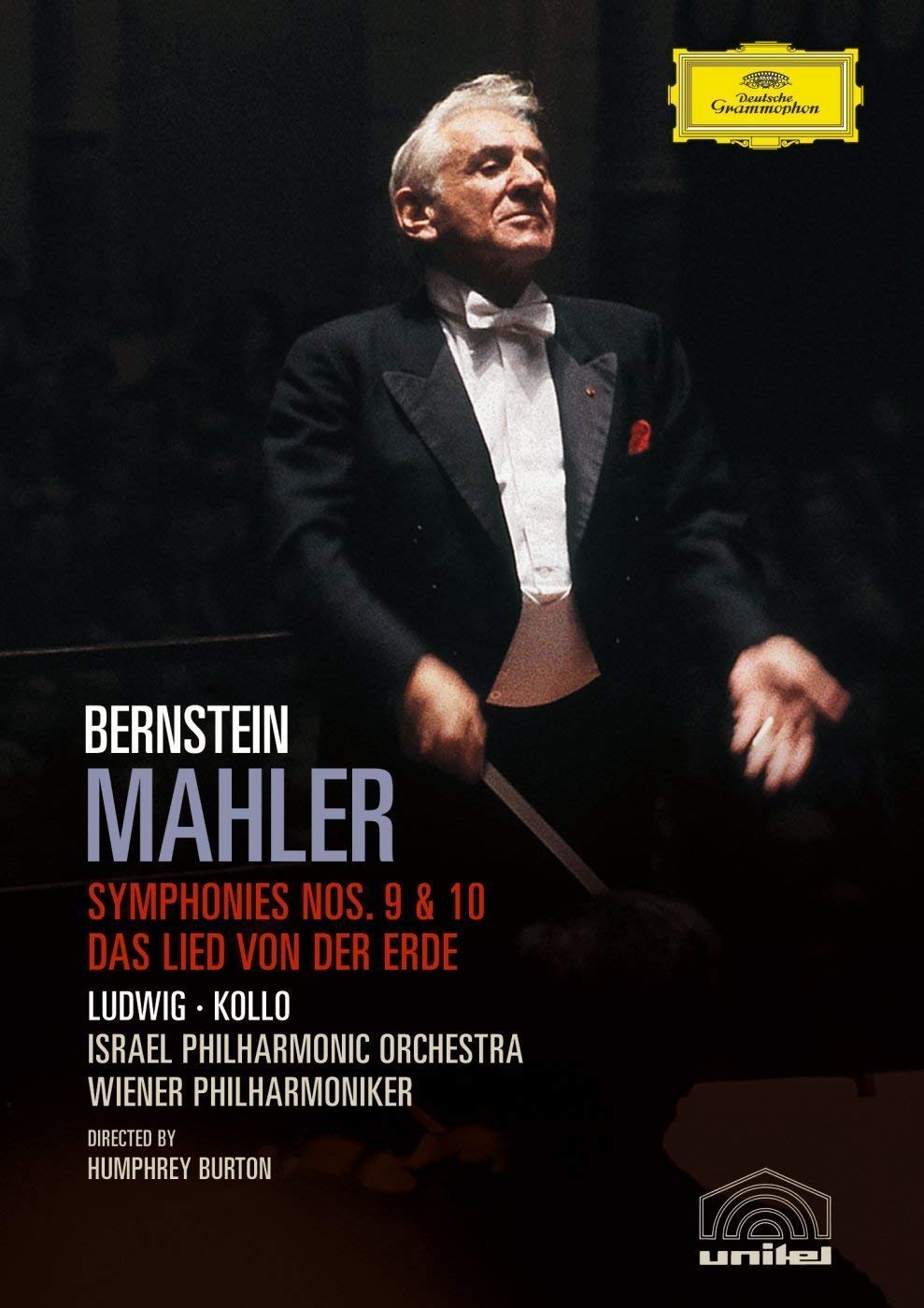 The Symphonies 9, 10, LvdE DG/Unitel Release: 2005 2DVDs US | UK | DE |


Just as well Boulez is coming up soon!
ReplyDeleteHa! Indeed. Spoiler: It's one of the best cycles available.
ReplyDeleteYes, I agree wholeheartedly! We seem to be in a relatively small minority in that regard.
ReplyDeleteRe: Ulfilas.
ReplyDeleteIt only has one (terrible) dud, the 8th. (Easily patched with Ozawa.) The 3rd is 'unique' and maybe not to everybody's taste. But all the rest are hot-blooded, superbly performed, riveting accounts that all rank among the best. It's almost too easy. :-)
Ah...I do have the Zinman 8th on RCA. Any thoughts on that?
ReplyDeleteHello Ulfilas. I have most of the Zinman cycle; I remember veering between curious intrigue, wanting more, thinking it underrated... but the 8th is the one I don't have. I might just rectify that. :-)
ReplyDeleteThe list of vocalists in Bernstein II is wrong, those mentioned are from Abbado's cycle (except for DLvdE)
ReplyDelete